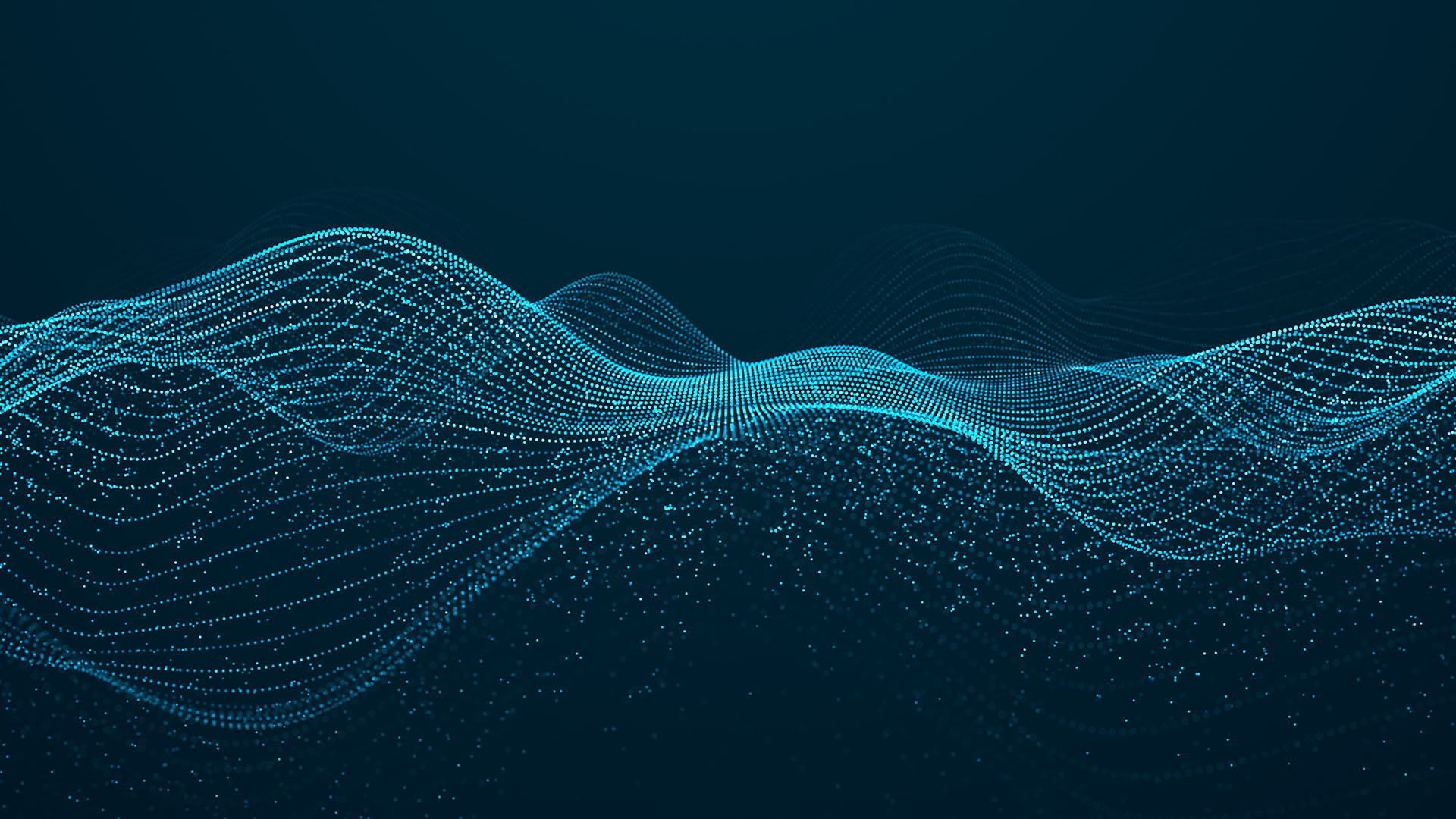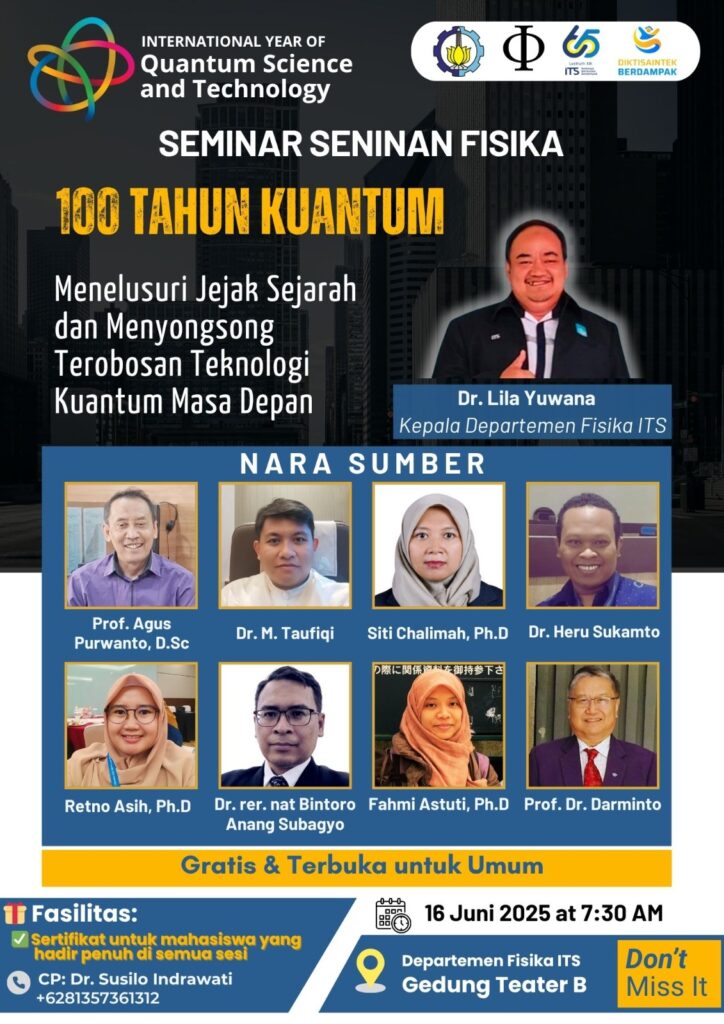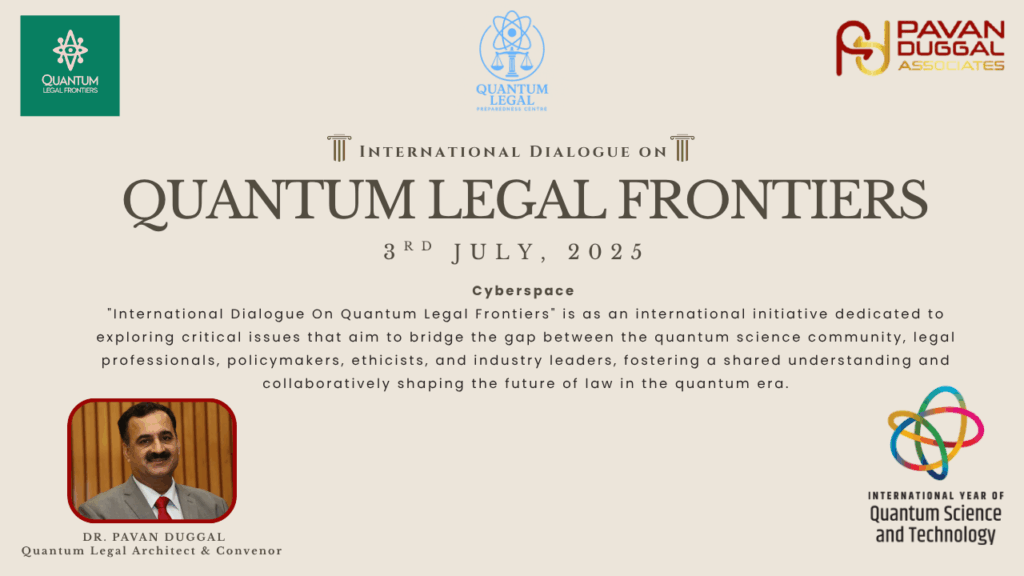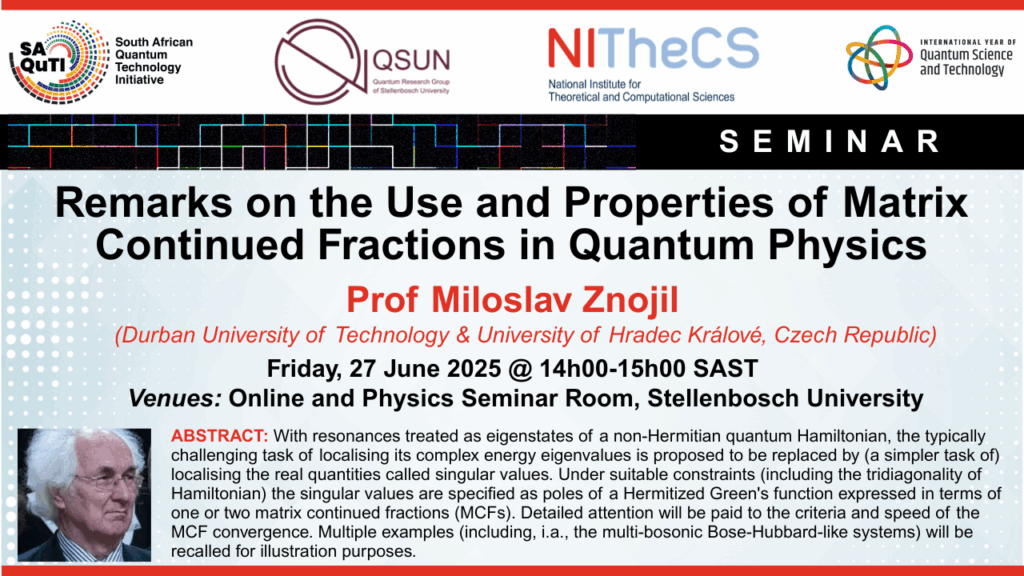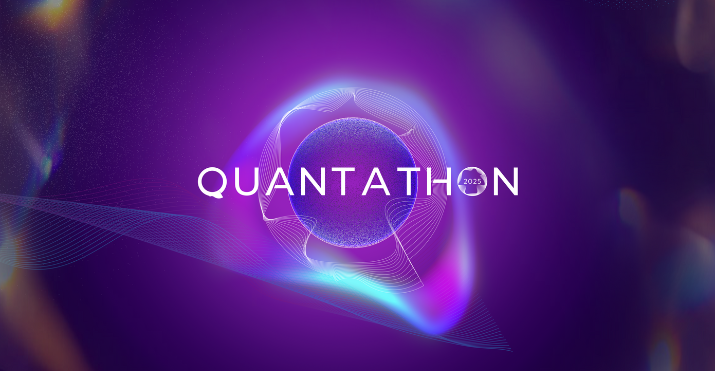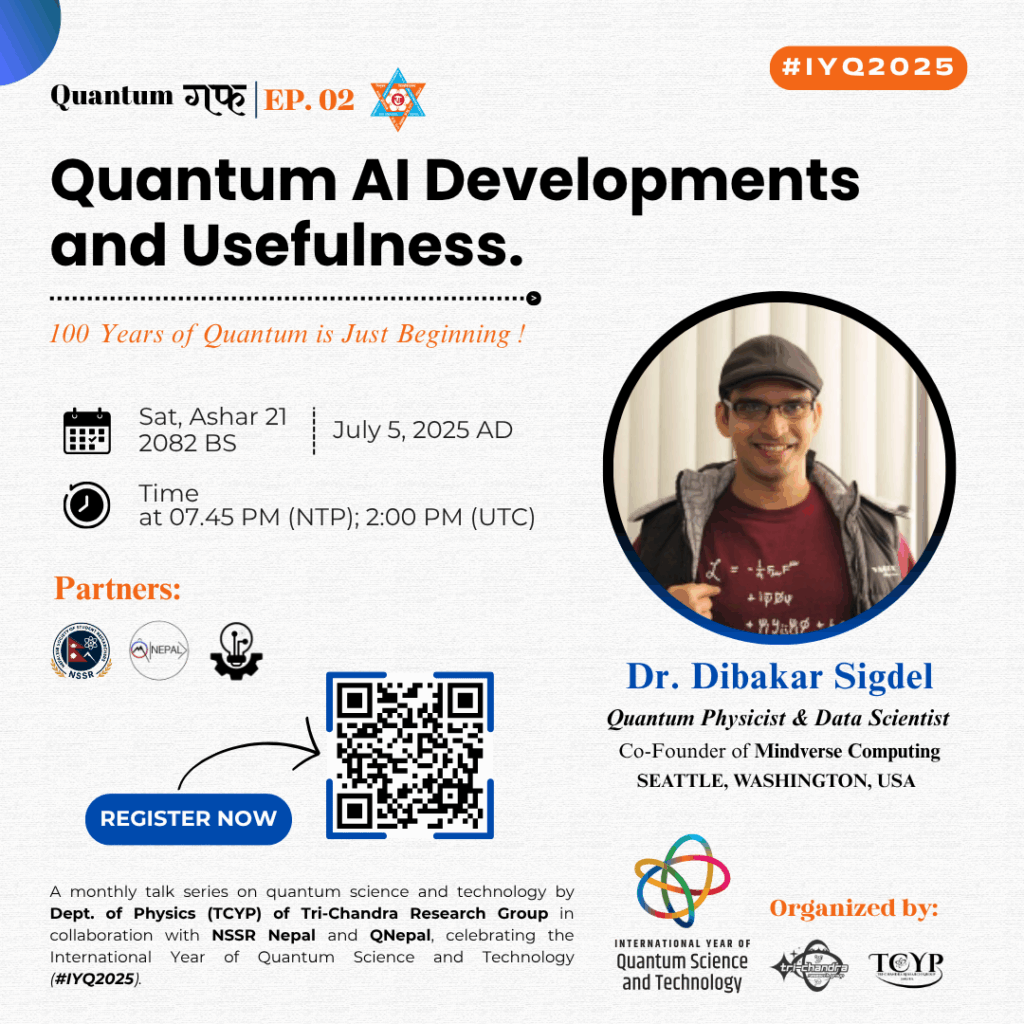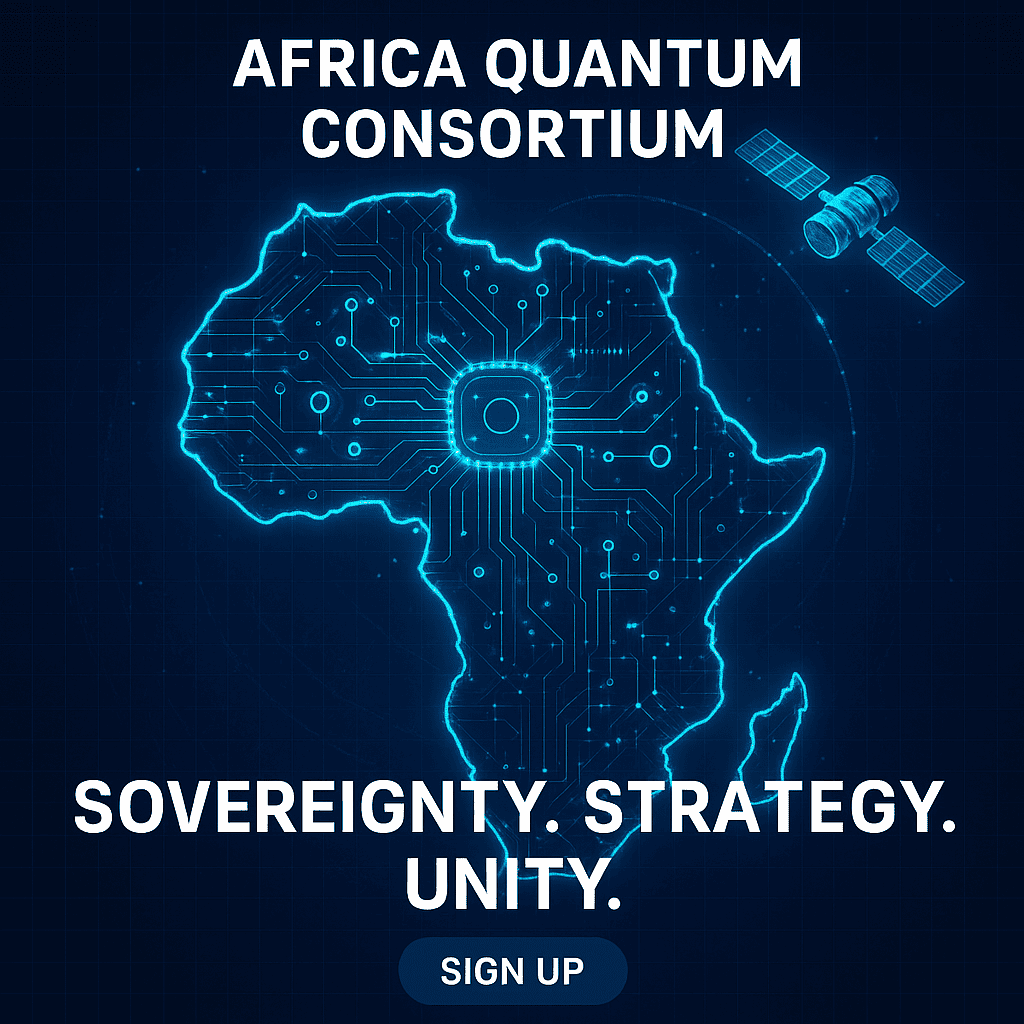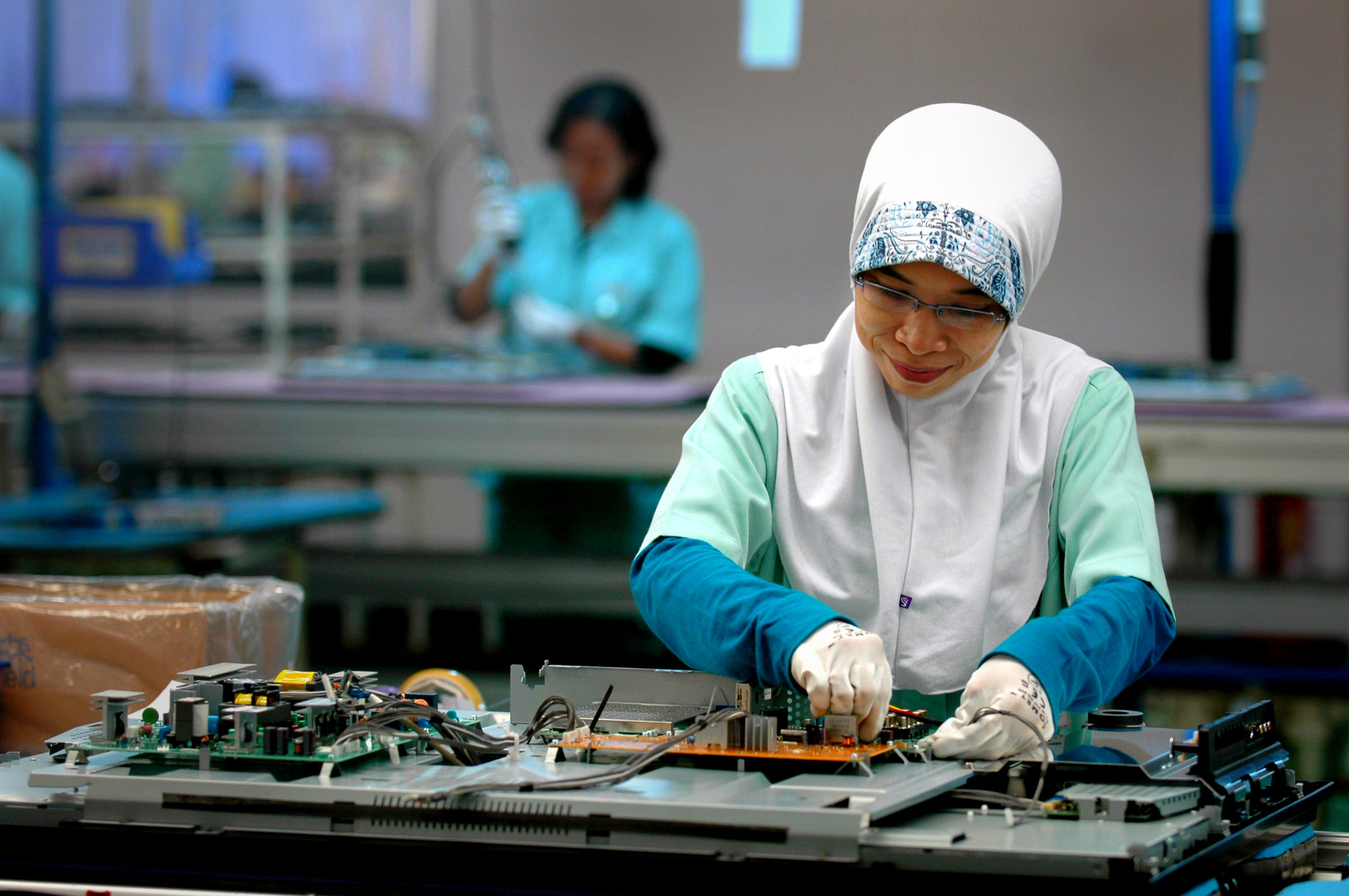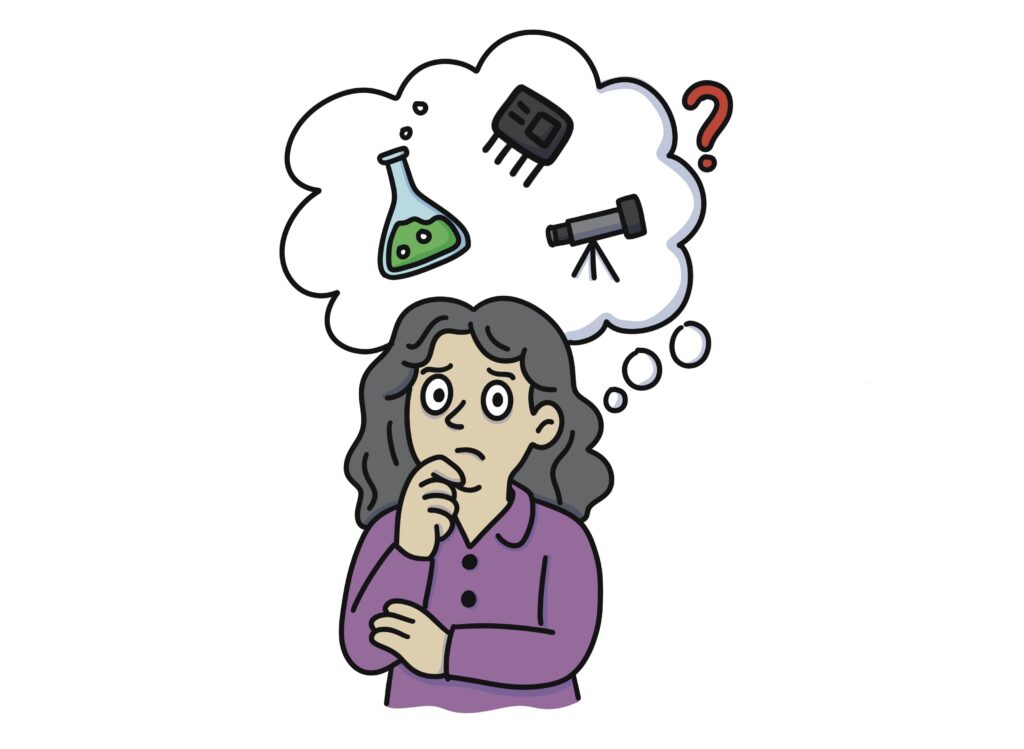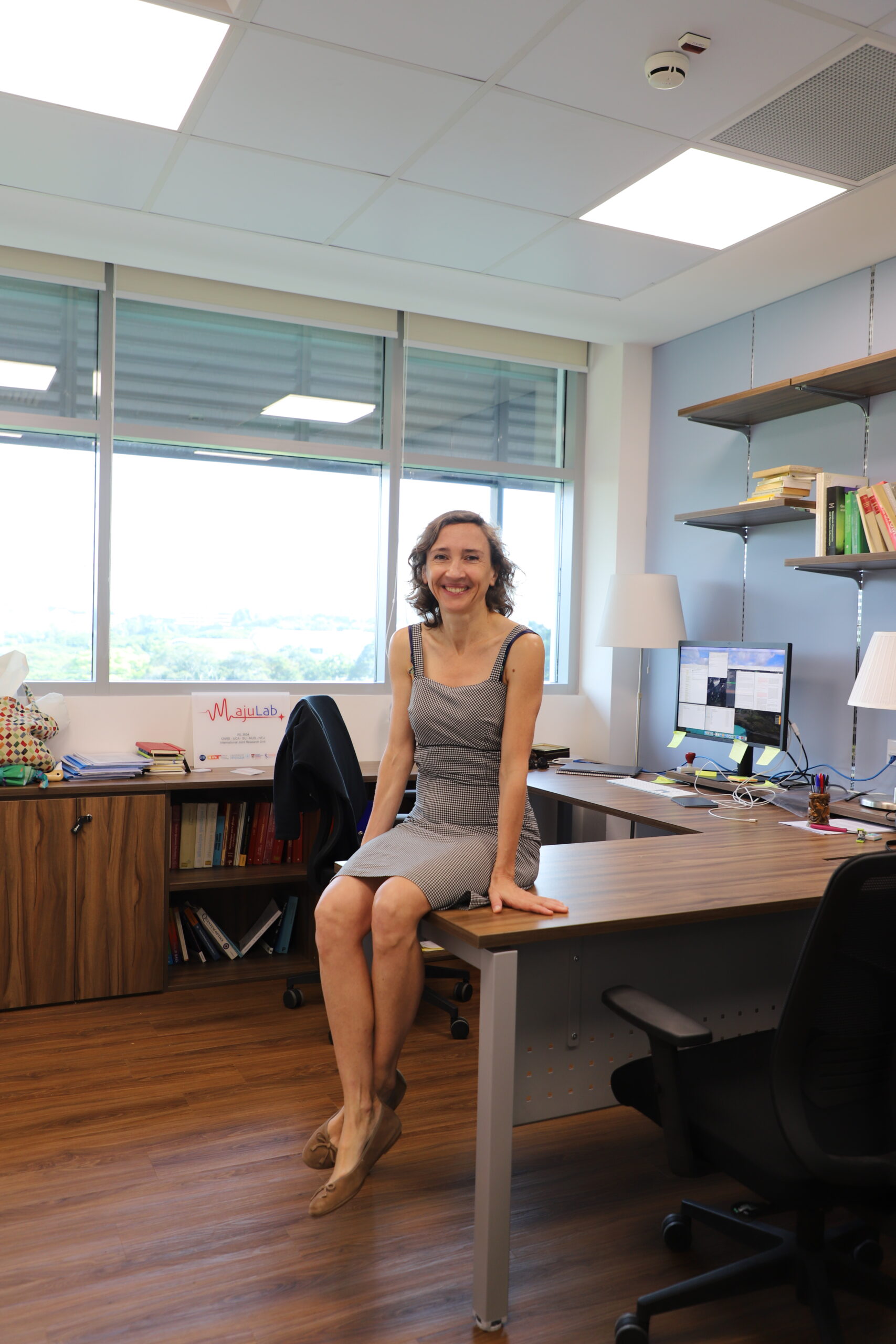Celebrating the UNESCO-declared International Year of Quantum Science and Technology in 2025, the Department of Physics at Institut Teknologi Sepuluh Nopember (ITS) proudly presents the 23rd annual Monday Physics Seminar, the longest-running weekly seminar series in Indonesia, featuring the special theme “100 Years of Quantum: Tracing the Historical Footsteps and Embracing Future Quantum Technology Breakthroughs.” This event, held on June 16, 2025, at the ITS Physics Department, brings together leading Indonesian experts in quantum science to explore the evolution, achievements, and future directions of quantum research, with a focus on entanglement, quantum teleportation, quantum heat engines, quantum optics, and solid-state quantum systems, and many more.
International Dialogue on Quantum Legal Frontiers 2025
The Quantum Leap and the Legal Imperative
The world stands on the cusp of a second quantum revolution. Advances in quantum science and technology, particularly in quantum computing, promise unprecedented computational power capable of tackling problems currently intractable for even the most powerful supercomputers. From accelerating drug discovery and material science to revolutionizing financial modeling and artificial intelligence, the potential applications are vast and transformative.
Recognizing the profound significance of this field, the United Nations has proclaimed 2025 as the International Year of Quantum Science and Technology. This global acknowledgment underscores the importance of raising public awareness, promoting international cooperation, and exploring the impact of quantum advancements across all sectors of society.
As quantum technology progresses from theoretical labs to practical applications, it inevitably intersects with existing legal, regulatory, and ethical frameworks. The unique principles of quantum mechanics challenge traditional notions of data security, intellectual property, privacy, governance, and even fundamental legal concepts. The development and deployment of quantum computing necessitate a proactive and informed approach to law and policy to harness its benefits while mitigating potential risks.
The Need for Legal Frontiers
While the scientific and technological aspects of quantum computing are rapidly evolving, the legal and policy discourse is still in its nascent stages. Existing laws, designed for a classical digital world, are often ill-equipped to address the complexities introduced by quantum capabilities. Issues such as the existential threat of quantum computers to current encryption methods, the legal status of quantum data, the ethical implications of quantum AI, and the need for international regulatory harmonization demand urgent attention.
“Quantum Legal Frontiers” is conceived as a timely and essential international platform dedicated to exploring these critical issues. It aims to bridge the gap between the quantum science community, legal professionals, policymakers, ethicists, and industry leaders to foster a shared understanding and collaboratively shape the future of law in the quantum era.
Event Objectives
The “Quantum Legal Frontiers” event aims to achieve the following objectives:
• Raise Global Awareness: Educate legal professionals, policymakers, industry stakeholders, and the public about the fundamental concepts of quantum computing and its immediate and long-term implications for law and society.
• Facilitate Interdisciplinary Dialogue: Create a unique hybrid space for experts from quantum science, law, policy, ethics, and industry to engage in constructive discussions on pressing issues.
• Identify and Analyze Legal Challenges: Deep dive into the specific legal, regulatory, and ethical complexities introduced by quantum computing across various domains.
• Explore Policy Responses: Discuss potential legal and policy frameworks, standards, and strategies necessary to govern quantum technologies effectively and responsibly.
• Promote International Collaboration: Highlight the importance of cross-border cooperation in developing harmonized legal approaches to a technology with global impact.
• Build Capacity: Equip attendees with the knowledge and perspectives needed to navigate the evolving landscape of quantum computing and law in their respective fields.
• Contribute to the UN International Year of Quantum Science and Technology: Serve as a significant global event marking the year by focusing on the crucial societal dimension of quantum advancements – its legal implications.
Exploring the Frontiers: Key Themes
The event will feature sessions covering, but not limited to, the following key themes:
• Quantum Cybersecurity and the Law: Post-Quantum Cryptography (PQC) migration legal mandates, liability for quantum-related data breaches, legal implications of “harvest now, decrypt later” threats, legislative needs for quantum-resistant infrastructure.
• Data Privacy & Protection in the Quantum Age: Re-evaluating data protection laws (like GDPR, CCPA) in light of quantum capabilities, legal challenges to consent and anonymity, protecting sensitive data against quantum attacks.
• Intellectual Property Rights in Quantum Technologies: Patenting quantum algorithms and hardware, trade secret protection for quantum software and techniques, challenges of inventorship and ownership in collaborative quantum research.
• Quantum Computing Regulation & Governance: The need for new national and international regulatory frameworks, export controls and national security implications, international standards for quantum technologies, anticipatory governance approaches.
• Ethical and Societal Implications: Legal and ethical considerations of quantum-enhanced AI (bias, accountability, transparency), potential for misuse (e.g., surveillance), ensuring equitable access and preventing a “quantum divide.”
• Quantum Computing and Cybercrime: Legal definitions of quantum-enabled cyber offenses, challenges for law enforcement and digital forensics, international cooperation in prosecuting quantum cybercrimes.
• Contractual and Liability Issues: Defining terms, reliability, and responsibility in contracts involving quantum computing services or hardware; establishing liability for errors or unintended consequences of quantum computations.
• Geopolitics of Quantum Computing: Legal and policy aspects of the global race for quantum supremacy, international norms, and arms control considerations.
• Sector-Specific Legal Deep Dives: Examining the unique legal impacts in finance, healthcare, pharmaceuticals, energy, and other key industries.
Join us in exploring and shaping the Quantum Legal Frontiers of tomorrow. More in the link
QSUN, SAQuTI & NITheCS Seminar
With resonances treated as eigenstates of a non-Hermitian quantum Hamiltonian, the typically challenging task of localising its complex energy eigenvalues is proposed to be replaced by (a simpler task of) localising the real quantities called singular values. Under suitable constraints (including the tridiagonality of Hamiltonian) the singular values are specified as poles of a Hermitized Green’s function expressed in terms of one or two matrix continued fractions (MCFs). Detailed attention will be paid to the criteria and speed of the MCF convergence. Multiple examples (including, i.a., the multi-bosonic Bose-Hubbard-like systems) will be recalled for illustration purposes.
Biography
Prof Miloslav Znojil is a Czech theoretical and mathematical physicist specialising in quantum mechanics, with a focus on simplified and tractable models, pseudo-Hermitian operators, and advanced algebraic and analytical methods. He earned his BSc in Nuclear Physics from the Czech Technical University (1968), followed by MSc and PhD degrees in Theoretical and Mathematical Physics from Charles University, Prague, where he was later awarded the prestigious Dr.Sc. scientific degree in 1994.
Prof Znojil has held research positions across Europe and Russia, including at the Institute of Nuclear Physics (CSAS, Rez), the J. Stefan Institute (Ljubljana), and FIAN Moscow. He currently serves as a Leading Research Worker at the Nuclear Physics Institute of the Czech Academy of Sciences, a Research Professor at Durban University of Technology, and an independent researcher at the University of Hradec Králové.
He is Deputy Director of the Doppler Institute (Rez branch) and sits on the editorial boards of Physics and Acta Polytechnica. He has authored over 325 publications with more than 5,800 citations (h-index: 38), and is recognised internationally for his contributions to quasi-Hermitian quantum models, perturbation theory, and supersymmetry.
AIMS Quantathon
The AIMS Ghana QTEdu Global Event is a week-long celebration of innovation, collaboration, and education. The goal of the AIMS Quantathon is to create opportunities for young Africans to participate in quantum education and contribute to the development of Quantum Computing (QC) applications for the SDGs. This is based on the “Hackathon in a Box” toolkit, which is curated by the Open Quantum Institute (OQI) Education Consortium.
Quantum गफ | EP.02 Quantum AI Developments and Usefulness
Join us for Episode 02 of Quantum गफ, a monthly talk series exploring the frontiers of quantum science and technology. The series is organized by the Dept. of Physics (TCYP) of Tri-Chandra Research Group (TCRG) in collaboration with QNepal and NSSR Nepal, as part of the global celebration of the International Year of Quantum Science and Technology (#IYQ2025).
Topic: “Quantum AI Developments and Usefulness”
Guest Speaker: Dr. Dibakar Sigdel, Quantum Physicist & Data Scientist, Co-Founder, Mindverse Computing
Seattle, Washington, USA
Session Overview
In this session titled “Quantum AI Developments and Usefulness,” Dr. Dibakar Sigdel will explore how recent advancements in quantum computing are driving innovation in artificial intelligence. From quantum machine learning techniques to real-world applications in data science, the talk will examine how quantum AI is poised to revolutionize the future of intelligent systems.
Contact Us

The Quantum Roundtable
Coming This September: The AQC 3Q Quantum Roundtable Showcase Africa’s Quantum and Deep Tech Momentum. This roundtable spotlights breakthrough startups, frontier research, and our bold vision for a deep tech innovation hub rooted in Africa. Global and diaspora partners will chime in as we shape the continent’s next leap. This is where ideas meet action. Pre-register now. Be part of the build.
Warwick Quantum Launch Event
Warwick Quantum is a new interdisciplinary research initiative that brings together the University of Warwick’s quantum technology work, encompassing the Departments of Computer Science, Mathematics, Chemistry, and Physics, as well as the School of Engineering and the Warwick Manufacturing Group. Our vision is to provide a bridge between these areas, making an impact on quantum computing and quantum technologies at all levels, from theory and foundations to hardware and industrial applications.
We are hosting the Warwick Quantum launch event in Warwick on Friday, July 11, 2025. The speakers will include Dmitry Budker, Sir Peter Knight, Helena Knowles, Gerald Milburn, and Michael Cuthbert.
Quantum for Good: Industry Leadership, Innovation and Real-World Impact
As part of the International Year of Quantum (IYQ 2025), the International Telecommunication Union (ITU) is launching the Quantum for Good track at the AI for Good Global Summit, taking place from 8 to 11 July 2025 in Geneva. This track will explore the potential of quantum technologies in advancing sustainable development, ensuring global inclusion, and setting the stage for ethical, responsible, and scalable innovation.
With only five years remaining to achieve the United Nations Sustainable Development Goals (SDGs), leveraging transformative technologies such as quantum computing and AI is essential for accelerating progress in climate action, healthcare, food security, and digital inclusion. Both AI and quantum computing are game changers, capable of addressing complex global challenges that surpass classical computing capabilities. Together, they can enhance computational speed and efficiency, optimize data-driven decision-making, and drive advancements in fields such as materials science, logistics, and cybersecurity.
How Does One Become a Quantum Scientist?
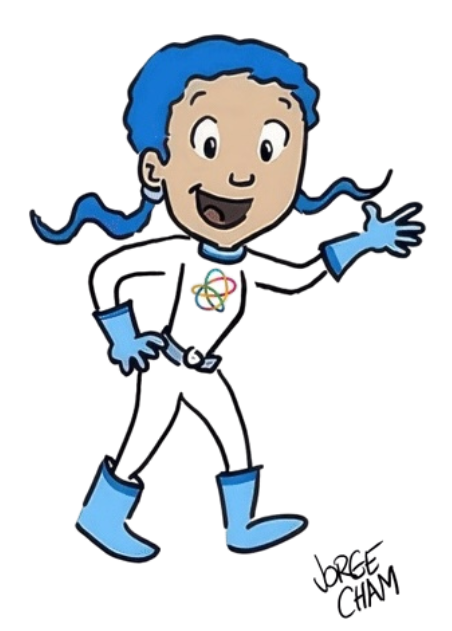
How does one become a quantum scientist?

Well, the first point to make is that it would be unusual to find someone with a quantum scientist title or some academic degree in “quantum science.” Since quantum science has such wide applicability, it’s used by lots of different fields of science, such as chemistry, physics, and many types of engineering. People usually get academic degrees in these types of fields, but are learning some quantum science while doing so. If a person gets a degree in chemistry and ends up using a lot of quantum mechanics in their work, they might be identified as a “quantum chemist.”

So, are there also “quantum physicists” and “quantum engineers”?

You won’t usually encounter people with these titles, even though quantum understanding is essential to both physics and engineering. In the case of physics, most physicists use quantum science in their work, some sparsely and some intensively – this is true for subfields ranging from astronomy and astrophysics to condensed matter physics to particle physics. Engineering disciplines where you’ll frequently encounter quantum science include electrical engineering, materials science, chemical engineering, and mechanical engineering.

And are there different subfields of chemistry that use quantum mechanics besides quantum chemistry?

Absolutely. Almost all chemists are concerned with the making and breaking of chemical bonds between atoms, and, among many other things, quantum mechanics underlies the rules of how bonds are made and broken. Some chemists will want to spend a lot of time understanding the quantum nature of bonds as part of their work, while others may not feel the need to. Someone who does biochemistry is less likely to spend time thinking about the things they work on in terms of quantum mechanics, while someone who does physical chemistry is more likely to.

Besides Chemistry, Physics, and Engineering, are there other scientific fields where people learn quantum science?

Yes, people in other physical sciences, like earth science and materials science, can require a quantum understanding of some things. As quantum mechanics can be viewed as a general theory of information, there’s increasing interest in it in computer science as well. This interest is also related to the development of new technologies like quantum computers, which is also an area where you’re starting to see people who identify as quantum engineers. There are also an increasing number of examples of people looking into whether quantum concepts are useful for biological systems.

I gather then that while there are few people who identify as quantum scientists, there are a lot of different types of scientists who use quantum science.

Yes! This is probably not that surprising since quantum mechanics is such a wide-ranging theory and is understood to be the ground rules for the physical world. You would expect that a theory that powerful would be useful for many different types of science. One useful thing about learning more quantum science is that it is knowledge that you can take with you if you go from one field to another.
Written by Paul Cadden-Zimansky, Associate Professor of Physics at Bard College and a Global Coordinator of IYQ.
IYQ mascot, Quinnie, was created by Jorge Cham, aka PHD Comics, in collaboration with Physics Magazine.
All rights reserved.
Illustrations: Solmar Varela
Featured image: Electronics factory worker, Cikarang, Indonesia © ILO/Asrian Mirza
Rethinking Energy in the Quantum Age
Interview with Dr. Alexia Auffèves, French physicist, pioneer of quantum energetics, and co-founder of the Quantum Energy Initiative (QEI).
Quantum physics has been the star of the tech world for almost a century now. However, a second quantum revolution is quietly emerging, shaking up the very foundations of how computers work at every level, from the principles behind the information itself and how the machines physically process it, to the algorithms. These new quantum technologies promise exceptionally faster computations and more secure communications.
As governments and industries invest heavily in quantum systems, it’s time to think about how we build and use them responsibly. That means not just focusing on what they can do but also on how much energy they use to accomplish tasks. Environmental and societal challenges recognized nowadays impose new constraints that were not obvious when classical computers first emerged. Early signs from quantum processors show lower energy consumption compared to traditional machines, but we don’t fully understand why and whether this advantage will persist as they scale.
In a seminal paper published on Physics Review X Quantum, in 2022, physicist Dr. Alexia Auffèves, First Class Research Director at CNRS in France, head of the International Research Lab MajuLab and invited Professor at the Centre for Quantum Technologies of Singapore argues that “a strong link between fundamental research and engineering is necessary to establish quantitative connections between quantum-level computing performance and energy consumption at the macroscopic, full-stack level.” In the framework of the International Year of Quantum Science and Technology, we had a conversation with Dr. Alexia Auffèves about her work as a pioneer of quantum energetics and as a co-founder and leader of the Quantum Energy Initiative (QEI) —an interdisciplinary effort that brings together experts in quantum physics, thermodynamics and energetics, computer science, and engineering aiming to understand how quantum technologies use energy from the ground up.
“I have been working in quantum thermodynamics for twelve years now, and at the beginning the impact of this research for quantum technologies was not easy to spot. The community of quantum thermodynamics was barely involved when the big takeoff in quantum technologies took place. I was part of the quantum thermodynamics community, but also had a vision of what was going on with quantum technologies because of my past as an experimentalist, and because I was running the Grenoble center for quantum technologies. So, I saw that there was clearly a gap to bridge between the two communities,” Alexia says.
Drawing lessons both from the history of classical computing and the recent developments in artificial intelligence, Auffèves reminds us that energy efficiency does not happen by accident: If you don’t search for it, you won’t find it. In the case of quantum computing, it may require decades of refinement, from understanding fundamental principles connecting energy cost and performance, to designing chips that balance performance with power consumption.
Creating an international research community to understand the energetic footprint of emerging quantum technologies
Motivated by the timeliness and relevancy of addressing the energy cost of quantum technologies, Alexia, her colleagues Robert Whitney and Janine Splettstoesser, and consultant and author Olivier Ezratty co-founded the Quantum Energy Initiative (QEI) in 2022.
That means establishing ways to measure energy efficiency in quantum devices, setting benchmarks, and identifying how to reduce energy consumption across different quantum platforms and computing paradigms. Quantum computing would be addressed first, but communication, and sensing, the two other so-called pillars of quantum technologies, would be investigated as well. The QEI team aims to define what “energy quantum advantage” really means in scientific terms and use that knowledge to guide smart design choices as quantum systems develop.
“The QEI is one of the first attempts to develop innovation in a finite world. In the past, innovators used to invest lots of money, hoping that something would come out. Now, we have to take into account the fact that the physical resources, especially energy, are finite. In that sense, quantum computing is growing in very, very different conditions than its older sister, classical computing, when there was oil all over the place, and so you could develop technologies presuming that we have infinite resources.”
But launching such initiatives, where fundamental science and emerging technologies intersect, also means navigating the influence of industry sectors, which often seek to align themselves with the prevailing ethical narratives of the time.
“When you launch an initiative like this, you are not really aware of the kind of forces it is going to trigger, especially nowadays, where there is a lot of quantum hype. If you mix this hype with the word “energy”, then it can quickly become unbearable. The QEI is not a greenwashing company. We are here precisely to prevent greenwashing. We are here to provide the community with objective scientific figures of merit so that sentences like: “Oh! My quantum computer will compute with less energy.” can be checked, and the energy efficiency of this very computer can even be compared to a fundamental bound and improved over time.
Can we build a theory that captures the quantum and the classical altogether?
To understand the true energy cost of quantum computing, we must look beyond hardware specifications and operational efficiency. At the heart of the challenge lies a much deeper, more conceptual problem: how to capture the quantum and classical worlds within a single physical model. This isn’t just a technical hurdle—it’s the oldest and still open problem of quantum physics, known as the measurement problem.
Any computation—whether classical or quantum—can be broken down into three stages: input, processing, and output. In quantum computing, both the input and the computational process involve inherently quantum phenomena such as superposition and entanglement. However, obtaining the result (the output) requires a measurement, a process that plays a central role in our understanding of quantum mechanics. Scientists remain puzzled by what exactly occurs during measurement, when quantum properties are seemingly lost as the quantum system interacts with the classical apparatus used to observe it.
“If you think about a quantum computer, while the computation is being performed, we deal with Schrödinger’s cat states, i.e. superpositions of states of “macroscopic” systems – here, data registers made of large numbers of qubits. So, there you have Schrödinger’s cat states in a box (a cryostat, for instance) that you are trying to control from the external [classical] world. And my feeling is that the truly fundamental energy cost of quantum computing is actually the cost of the box surrounding the Schrödinger’s cat.
Answering that question is hardware-independent and would also be a way to solve one of the biggest open questions of quantum physics: can we build a theory capturing the quantum and the classical altogether?
Nowadays, this question belongs to the field of quantum foundations, which is largely decoupled from quantum technologies where ‘Shut up and calculate’ [the answer usually given by engineers and academics to people wondering on the philosophical meaning of quantum theory] has been proven an efficient strategy; However, if you really want to calculate minimum energy costs and get a universal framework to benchmark all possible quantum platforms, solving that fundamental problem is highly relevant. This is a beautiful example of how the answer to foundational issues can be triggered by technological questions, just like the thermodynamic arrow of time came out from the optimization of heat engines,” Dr. Auffèves enthusiastically explains.
Quantum energetics at the forefront of the fundamentals of quantum physics itself
Peeling back the layers of abstraction to understand what’s really happening inside a quantum computer is foundational to asking deep questions about the nature of energy, noise, and computation at the quantum level. Alexia reflects on how her investigation offers a window into that philosophical and scientific inquiry, one that challenges us to rethink what “energy cost” means in the quantum world.
This is research driven by curiosity, not utility, by the desire to grasp what quantum energetics truly means at its core.
“My research is about understanding the fundamental mechanisms ruling flows of energy, entropy and information at the quantum level, and how these behaviors scale up to the macroscopic level. This research line dubbed quantum energetics is young, fundamental and it has an intrinsic value, out of any technological considerations. It is very important to underline that the QEI does not only promote a technologically-driven research. We also foster this fundamental core of quantum energetics. It is curiosity-driven and has triggered a number of exciting new questions lately, like measurement-powered engines where looking at a quantum system is enough to put it in motion!”
Dr. Alexia Auffèves kindly explains what quantum energetics is.
“It is inspired by classical thermodynamics, whose first motivation is to turn ‘messy energy’ (heat) from hot baths into a useful, controllable one (work). That is called a heat engine, and thermodynamics tells us what is its maximal efficiency, which is a fundamental bound. A second motivation is to reverse natural heat flows, which has a work cost: this is called a fridge, and it also has a fundamental bound. Now, what plays the role of the heat in quantum physics is quantum noise (like decoherence), which comes from the coupling to baths which do not necessarily have a well-defined temperature. This is why I talk about quantum energetics and not quantum thermodynamics (where temperatures play a central role). One of the purposes of the field is to derive quantum fundamental bounds: find the minimum energy cost for any kind of quantum process, for any kind of quantum noise. We want to relate irreversibility and energy waste in the quantum realm, where there is no temperature in the picture. This line of investigation is all about understanding the fundamentals of quantum physics with energetic and entropic probes.”
While much of quantum research today is driven by the race to innovate and commercialize, there remains a quieter, deeper pursuit—one that asks foundational questions about the nature of energy, noise, and irreversibility at the quantum level.
In a world increasingly shaped by energy concerns and climate imperatives, amazing women in science, such as Dr. Alexia Auffèves and the QEI, offer a roadmap for responsible innovation while pioneering fundamental research in quantum mechanics. It’s time to power the quantum future, with precision, purpose, and sustainability.
The quantum future doesn’t have to repeat the mistakes of the digital past. It can be better—if we start now.
Credit for the pictures: CQT.


